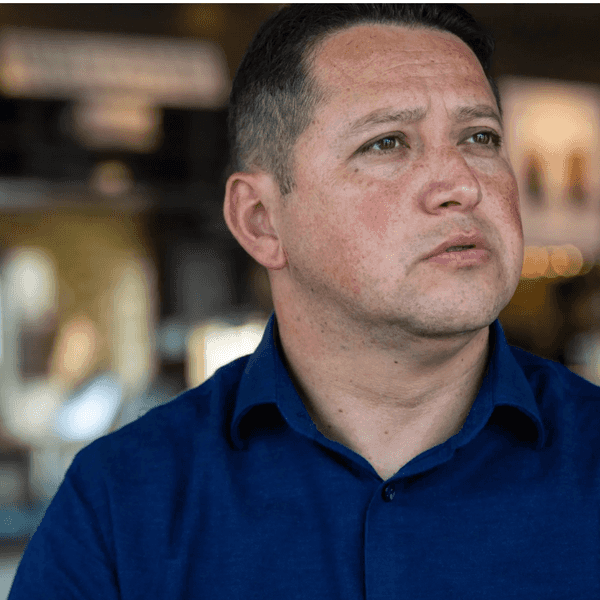
By Sarah Breitenbach, Stateline.org (TNS)
WASHINGTON — For Tuscaloosa, Alabama, there are lessons to be learned from the terror that gripped Paris this month.
After the Islamic State attacks, Democratic Mayor Walter Maddox took note of the Parisian security staff that prevented a suicide bomber from entering the French national soccer stadium. His thoughts turned to Bryant-Denny Stadium — where more than 100,000 people gather for University of Alabama football games.
Maddox said he considered what could happen in his 95,000-person city. But he and some terrorism and security specialists say many chief executives and police departments in midsize U.S. cities may not realize that terrorism could put their people and infrastructure at just as much risk as high-profile targets like New York City and Washington, D.C.
“The larger cities understand and grasp this,” Maddox said. “I’m not sure that at the midlevel cities the awareness is that high.”
But terrorism can and does happen in those places. This year, two men suspected of communicating with overseas terrorists were killed when they attempted to attack a free-speech event in Texas, a gunman killed four people at a military recruiting center in Tennessee, though it was unclear if he had worked with known terrorist organizations, and security was heightened across the country during Fourth of July weekend.
In the days following the Paris attacks New York City deployed the first 100 officers in the city’s new Critical Response Command. The 500-officer program will be dedicated to counterterrorism in the city, which spent $170 million this year to bring 1,300 new police officers to its 34,500-officer force.
Conversely, in Wichita, Kan., where an airport worker was arrested after he tried to execute a suicide attack at the local airport in 2013, the 437-officer police force was struggling to stay fully staffed this summer.
While it’s difficult to tell just how prepared every state and municipality is for a potential terrorist attack, security specialists say the ability to prevent and react well depends on a communication system and local counterterrorism efforts that are still underdeveloped, even 14 years after 9/11.
Chet Lunner, a security consultant and former senior official at the U.S. Department of Homeland Security (DHS), said the FBI has counterterrorism investigations in every state, but most places probably lack the resources to prevent or respond to an attack.
“You might think that all 50 states are responding to that kind of warning, but I’m not sure that they are at the appropriate level,” Lunner said.
The Paris attacks on “soft” targets like the restaurant and the concert hall — places with minimal security — should signal to local governments in the U.S. that they, too, could be at risk.
Lunner and Michael Balboni, a security consultant and former New York state senator who wrote homeland security laws for his state, say even if smaller cities and towns aren’t at high risk for violence and are short on the financial resources that big cities have, they should still plan and practice for terrorist attacks.
“State and local personnel are literally the tip of the spear,” Lunner said. “They owe it to themselves as well as the communities they serve” to be as prepared as possible.
Despite repeated efforts and hundreds of millions of dollars spent on collecting and sharing information nationwide about potential terrorist threats, questions remain about how much filters down to local officials, especially in smaller municipalities.
In 2003, DHS and the U.S. Department of Justice began creating fusion centers to encourage and ease the sharing of information between federal law-enforcement and counterterrorism officials in states and major urban areas. But a 2012 U.S. Senate subcommittee report found the centers yielded little counterterrorism intelligence.
In 2011, the White House released the first national strategy and plan to empower local governments to prevent domestic violent extremism and homegrown terrorism. The plan advocates enhancing federal engagement with local communities that may be breeding grounds or targets for violence, though it has been criticized for disproportionately focusing on and alienating Muslims.
Until there is centralized information-sharing between the national and local governments, it will be difficult to get localities invested in sustained antiterrorism work, Balboni said.
Balboni, who also served as a New York state homeland security adviser, said the fusion centers need to morph into what he calls “command and control centers” that gather intelligence and work in places where a potential threat or terrorist activity surfaces.
People who don’t live in big cities typically viewed as likely terrorist targets may not think about terrorism affecting their communities or about devoting the resources to countering the possibility they could be hit. But they ought to.
Less-populated locales are where terrorists may settle in to plan or practice attacks, Lunner said. It is up to local police to get to know people and seek out information about potential threats.
“In this country, if you dial 911, the CIA does not show up at the end of your driveway,” Lunner said.
(c)2015 Stateline.org. Distributed by Tribune Content Agency, LLC
Photo: Andrea Wright via Flickr








